If you’ve been thinking about lowering your impact on the planet, now’s the perfect time. It’s officially Plastic Free July, a month where millions of people pledge to reduce their plastic waste. If you want to join the movement, it’s a lot easier than you think. We talked to some sustainability experts to help you figure out the best ways to replace the single-use plastic in your life so you too can be plastic free this July.
Plastic Free July was founded in 2011 by Rebecca Prince-Ruiz as a grassroots campaign to raise awareness about plastic pollution. Since then, the movement has grown immensely and in 2021 alone, participants reduced 2.1 million tons of waste.
“Plastic Free July has become a month where consumers can focus on integrating plastic-free options within their routine, or try to eliminate plastic as much as possible for a month, hopefully building habits that they can stick with throughout the year,” says Danielle Jezienicki, senior director of sustainability at Grove Collaborative. “To me, it’s a way for people to take a fresh look at the role plastic plays in our everyday lives and as they reexamine routines and necessity — try to find alternatives that reduce our use of plastic.”
Verity Noble, co-founder of Nude Foods Market in Boulder, Colorado, says Plastic Free July is a great way to encourage people to reduce their plastic waste. “As a co-founder of a zero-waste grocery store, creating awareness around plastic consumption is key because it has become such a normal part of everyday life,” says Noble. “Many people feel too powerless, or too exhausted, to stop the tsunami of plastic coming their way and this month will show us we have the power to create change.”
Any amount of plastic you’re able to cut out of your life is helpful,that’s why Plastic Free July has created the Pesky Plastics Quiz, which helps you identify areas in your life where you can cut down on plastic.
Along with taking the online quiz, Jezienicki says it’s important to take a close look at your waste to see what kind of plastics you use on a day-to-day basis. “I always recommend a ‘waste audit’ which is where you look at the contents of your trash and recycling bin to see where your use of plastic is the greatest,” says Jezienicki. “Don’t be fooled by what’s in your recycling and supposedly getting recycled because 1) most of what we think is getting recycled is not [the US recycling rate is below 6%] and 2) even if it is recycled, plastic can only be recycled a few times before ultimately ending up in a landfill, or as pollution.”
Through this waste audit, you’ll be able to find the worst offenders in your waste stream. Oftentimes, you might not even realize where all the plastic is coming from. “Single-use plastic is so engraved in our behavior, that we most often overlook common items that do not have the level of awareness that other items have,” says Ryan Lupberger, co-founder and CEO of Cleancult. “We all know plastic straws and bags are bad, but we need to take a closer look to other items like the fresh produce area in our supermarkets, cleaning products, travel size toiletries and beauty products.”
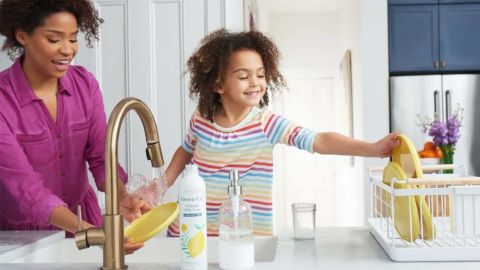
Noble says having zero-waste products with you at all times can help you avoid creating more waste when you’re out and about. “Create a go bag with a reusable water bottle, coffee cup, silverware and tupperware and if you forget it, choose to eat in rather than take out,” she says. “And also don’t forget how powerful leading by example is. Don’t be afraid to show others what you’re doing. They may not make a change immediately, but it will get them thinking.”
Jezienicki says making any change no matter how small and buying from brands that don’t use single-use plastic is critical. “While we know this topic is true all year round, prompting action through [Plastic Free] July can be a super important step towards taking one step, which leads to another and hopefully another,” she says.
If you commit to reducing your waste for July, it’s important to keep that momentum going past the end of the month too. Keep trying to lower your impact in any way you can, and Jezienicki recommends reaching out to your favorite brands and asking them to reduce plastic waste too. “Having led sustainability at multiple brands — these consumer letters often get to very senior levels of the company if not the CEO directly and they matter,” she says. “Brands know that consumers are fed up with plastic packaging, and reaching out to them makes the pressure feel more direct.”
If you’re up to reducing your plastic waste this July, we asked our sustainability experts for their favorite products that cut plastic out of their lives. Check them out below and be sure to sign up for the official challenge on the Plastic Free July site. You’ll get more tips and tricks to help you stay motivated throughout the month, along with other news and information about ways to help reduce plastic pollution.
$12 at Who Gives A Crap
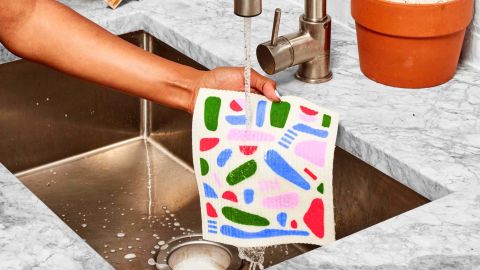
Cleaning up messes in the kitchen can quickly run through roll after roll of paper towels, which oftentimes comes in plastic packaging. Ditch the roll and opt for a reusable, ultra-absorbent Dream Cloth instead. It soaks up more water than paper towels and can be thrown in the dishwasher or washing machine so you can use it over and over again. Check out this pack of some of our other favorite Swedish dishcloths here.
$15.95 at Hive Brands
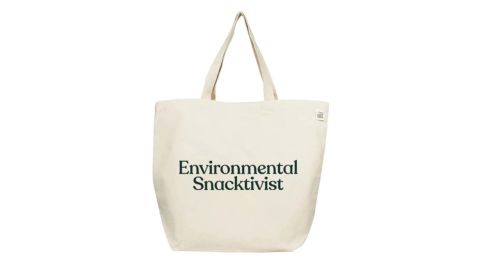
“The first thing you can do to reduce your plastic waste is to buy a canvas bag you can use instead of a plastic bag,” says Lupberger. “Bring it when you’re grocery shopping (or doing any kind of shopping) and use it to carry your food out! They are cheap, reusable, strong and convenient.”
$42 at Package Free
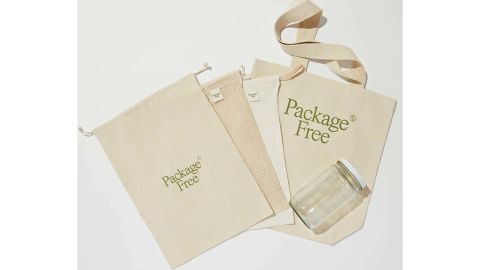
Whether it’s plastic produce bags, wrapped foods or grocery bags, there’s a lot of plastic waste at the market. This Package Free Market Kit makes reducing your plastic trash a breeze with a tote, a mason jar and three cotton produce bags.
$34.95 at REI
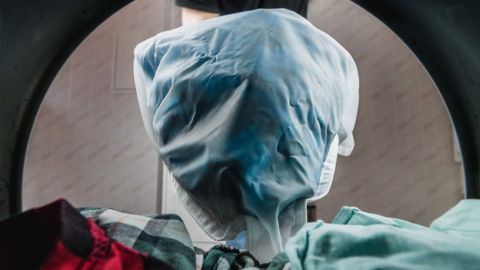
“I am always surprised at how few people are aware of the topic of microplastic shedding that happens every time we wash yoga pants, athleisure and any synthetic fabrics in a washing machine,” says Jezienicki. “These fabrics are made with some portion of plastic, and when they spin around the washing machine, tiny pieces of plastic called microplastics, are shed into the water that goes out with the dirt, contributing to incredibly widespread, yet somehow unknown microplastic pollution.” To avoid this, Jezienicki recommends wearing clothes made with natural fibers such as cotton, linen, wool and hemp, and if you’re going to wash synthetic plastics to put them in a Guppyfriend Bag, which traps the microplastics shed from your clothes.
$8.99 $6.74 at Hive Brands
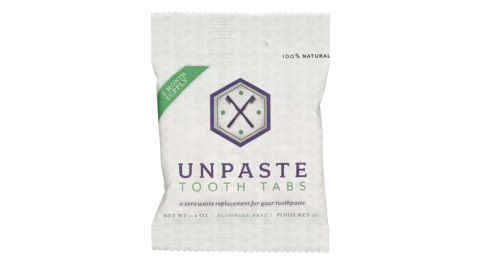
“Toothpaste tubes are not recyclable and almost everyone uses them — just imagine how many are in landfill right now,” Noble says. “Try toothpaste tabs instead. At Nude Foods these come packaged in a glass jar but you can also get them elsewhere in compostable packaging.” These toothpaste tabs from Unpaste come in an industrially compostable package. To find a composting facility near you, go to www.findacomposter.com.
$48 $32 at Bite
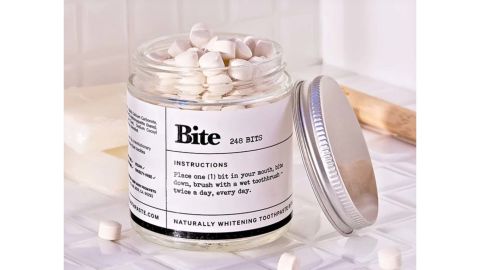
Bite offers toothpaste tabs in a glass jar which you can throw in your recycling once it’s empty. The toothpaste bits have clean, vegan-friendly ingredients that’ll keep your teeth sparkling.
$172.86 $109.99 at Cleancult
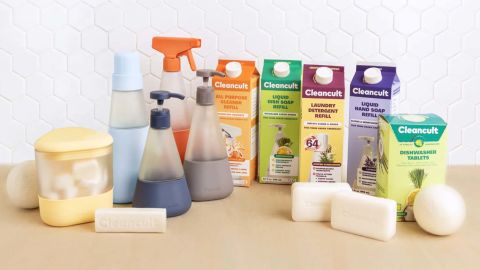
“Make the switch from plastic bottles to pretty and durable glass bottles,” says Lupberger. “It’s amazing how much single use plastic we buy! Check out Cleancult’s Complete Home Bundle to cover off every room of the house!” With refillable glass dispensers for any sort of cleaning you can think of in your home and recyclable refill containers, this bundle can help eliminate plastic bottles from your garbage.
$7.99 at Grove Collaborative
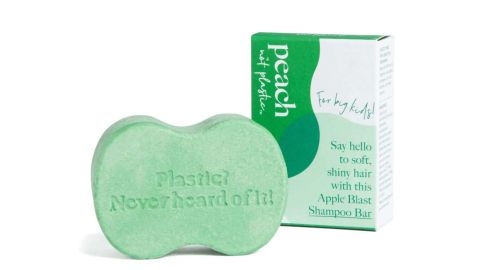
“These fun fragrances and colored bars are such an easy way to integrate plastic-free products into your everyday routine and model for kids how plastic isn’t a necessity,” says Jezienicki. She also recommends the conditioner and body wash.
$12.99 at Stasher
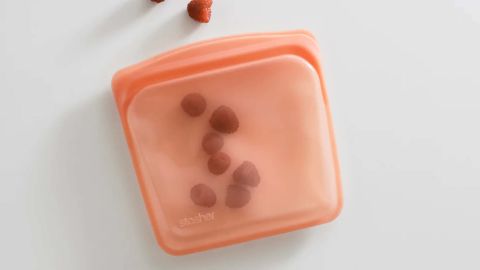
If you’re still packing lunch with plastic bags, you need to swap to a Stasher bag now. We absolutely love them since not only do they cut down on plastic, but they can be frozen, boiled, microwaved and thrown in the dishwasher too.
$19.99 at Grove Collaborative
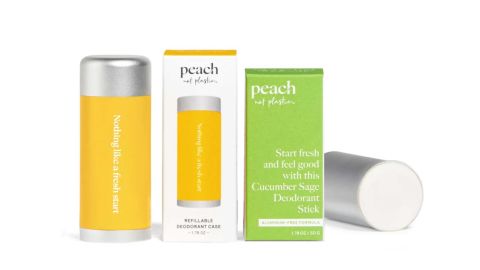
“Peach not Plastic refillable deodorant is such a great solution and product,” says Jezienicki. “Such an easy swap out of plastic, and I love the fragrances and texture.”
$13 at Grove Collaborative
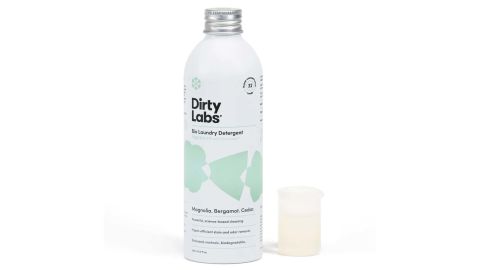
Another low-waste laundry alternative, this time from Dirty Labs. This detergent comes in a recycled aluminum bottle that can be recycled again once you’ve used it up.
$12.99 at Grove Collaborative
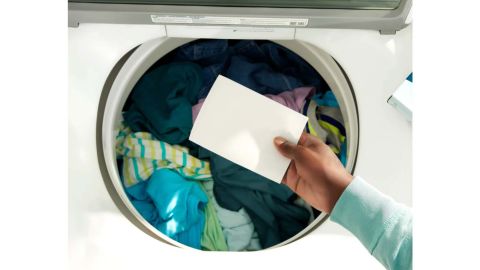
If you don’t want to deal with liquid detergent, check out these laundry detergent sheets. They instantly dissolve once you turn your washer on and come in fully recyclable paper packaging.
$62 at Who Gives A Crap
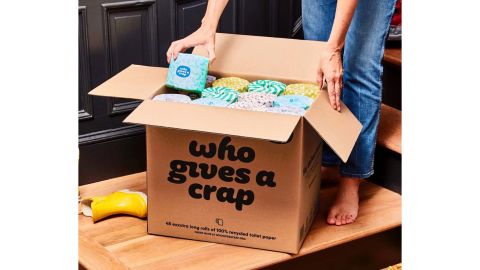
Toilet paper is traditionally packaged in a thin film of plastic that’ll just end up in a landfill. Who Gives A Crap 100% Recycled Toilet Paper, on the other hand, is packaged in recyclable paper. It’s our favorite toilet paper alternative because it’s made from recycled paper, not virgin paper, so you can feel better about your impact on our planet’s forests too.
$24.95 $19.99 at Amazon
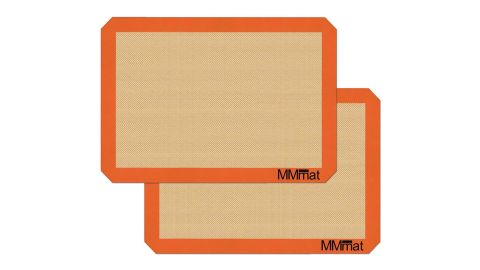
“Rethink your kitchen: Choose tupperware over Saran Wrap and foil, choose silicone baking sheets over parchment paper and choose reusable cloths over single-use paper towels,” says Noble. “And compost everything you can!” These MMmat silicone baking mats are some of our favorites. One of our writers uses them nearly every day and has given aluminum foil up for good.
From $25 at W&P
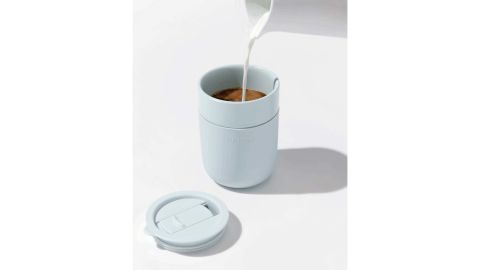
“Get a ceramic reusable travel coffee mug and stop generating waste everyday,” says Lupberger. “Take your coffee cup to your favorite coffee shop and ask that they serve your coffee in that mug instead.” This stylish ceramic mug from W&P comes in 12-ounce and 16-ounce sizes, as well as a wide assortment of cute colors.
$18 $14.99 at Amazon
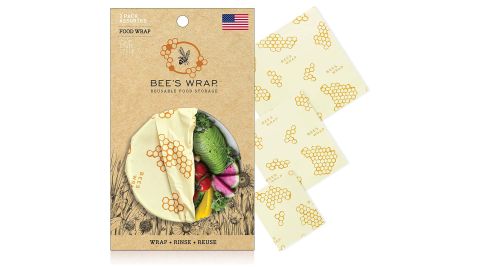
Figuring out how to store leftovers without plastic can be a little tough. You can try reusable containers like this one or Stasher bags, or you can use this beeswax wrap, which can mold to any sort of bowl, container or food to keep your leftovers fresh. We tried them out ourselves and loved them.




